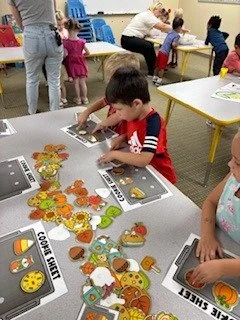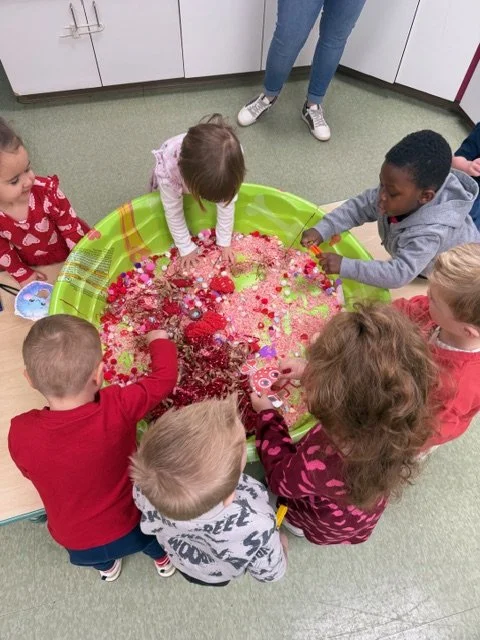Areas Of Development
Social and Emotional Development
This area of learning focuses on activities for children that encourage them to develop self-confidence and self-awareness, manage their feelings and behavior and form deep relationships with their teachers and peers.
Creative Development
Our programs strongly emphasize the importance of creativity and the imagination. The environment encourages children to explore and experiment with music and a variety of art materials ranging in media, color, design and texture. In all areas of learning, children are encouraged to think in original ways helping to develop their problem solving and critical thinking skills.
Science
Beginning when children are young, science helps shape their development. As they learn to ask questions, make predictions, observe, test, and then communicate their findings, they are developing critical science skills.
Science helps children develop key life skills, including an ability to communicate, remain organized and focused, and even from their own opinions based on observation. Science also helps children develop their senses and overall awareness.
Children are hands-on learners, and the world around them provides so many natural opportunities. That is why you should never underestimate the power of learning through play. Interacting with their environment will support their intellectual development.
Children are primed for learning, and what they learn while they are young can impact their interests later in life. Studies have shown that students begin to develop an interest in science, technology, engineering, and mathematics (STEM) during the elementary years. Having an interest and knowledge in these subject areas provides future career opportunities.
Math and Cognition
The environment, daily routines and everyday activities allow children to begin developing mathematical and scientific awareness at an early age. Our programs and environment enable children to explore and discuss shapes, size, weight, capacity, position, distance, time and money, as well as, count, compare, relate, identify patterns and problem solving
Physical Development
Our school is fully equipped with resources that allow children to run, skip, jump, climb, balance and throw, catch, hit and kick a ball (gross motor skills – physical strengthening and coordination through movement). Children develop their fine motor skills through activities such as: using utensils, writing, drawing, coloring, painting, building with blocks, manipulating clay, and other manipulative activities and games.
Spiritual Development
Our primary goal at FBCM is to plant seeds for Christ. The ABC Jesus Loves Me Curriculum interweaves Bible stories and biblical principles throughout the material. In addition, Chapel is taught every week using Christian DVDs containing with songs with creative movement, puppet characters, and a Bible lesson with a verse in every episode. In addition, teachers use teachable moments throughout the day to reinforce God’s word and the teachings of Jesus, God’s son. Children are taught that God loves them and that they are to love Him and others and treat others with kindness and respect.
Language and Literacy
The foundation for literacy begins with oral language. We provide language-oriented activities to build strong grounds for language acquisition. As the children develop their verbal skills, they will be introduced to activities that will further develop their early literacy skills (reading and writing)
Diversity
We are an inclusive community that celebrates diversity. Mutual respect and awareness are key elements in constructing a community of learners and ultimately, global citizens.
Collaboration
In order to provide an excellent learning environment, teachers, parents, and children must work together as collaborators. Children should also be aware of their surrounding environment and encouraged to find ways to work together with fellow community members.



